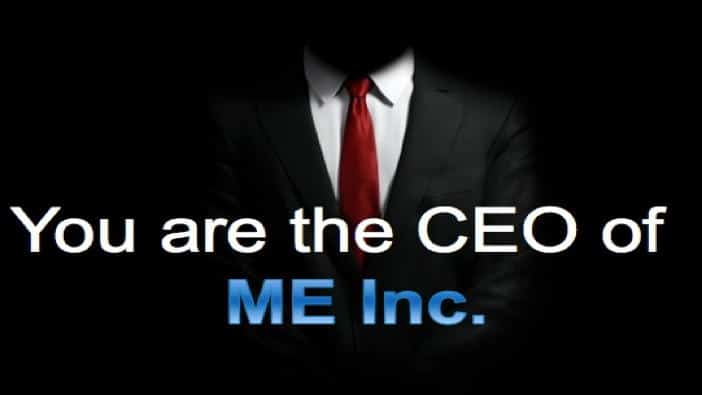“Mission statement”
noun
- A formal summary of the aims and values of a company, organisation, or individual.
Most people are familiar with company mission statements, which can often be ridiculed as being meaningless. To some extent, I would agree with the sentiment because many companies do very little to emphasise, communicate, and practice their mission statements—but what about individuals? Do you consider yourself as having a personal brand, and can you summarise it?
Personal Brand
Everyone has a personal brand, and whether you have consciously cultivated it or not, it exists. Therefore, the question is, do you want others to be responsible for defining your personal brand, or do you want to take control and ensure you deliver the right perception of brand “you”?
A mission statement should, essentially, convey aspects of your personal brand and what you personally represent and strive to achieve, i.e., what matters to you, what motivates you.
A personal mission statement can be a very powerful tool because it clearly defines your goals, allows you to more readily dismiss distractions, and provides a clearer pathway to success.
Share
Companies share their mission statements and you should be no different. It may feel a little odd at first, as if you’re exposing yourself too much, but there is power in sharing and ensuring brand you is an accurate reflection of yourself. Those with similar values and beliefs may support you, help keep you on the right path, and assist you in achieving your mission.
Before starting business school, I was encouraged to write my own mission statement and published it as my LinkedIn profile summary:
“To innovate, disrupt, lead, inspire, have fun, live a balanced life, and apply ethical principles to make a significant difference.”
At the time of writing the statement, it reflected my outlook on three key areas of my life: my career ambitions with my then employer, my personal relationships with family & friends, and the two-year Executive MBA course I was just about to begin. In a sense, it felt important to write down a statement as I embarked upon something new to ensure consistency throughout each aspect of my life.
There are a number of studies that focus upon the different “masks” people wear in different aspects of their lives. The “masking” process—quite common—sounded both stressful & tiring, and as a big believer in “what you see is what you get”, I was keen to provide focus for consistency. Albeit, there are times where one does occasionally need to don a mask.
Crafting a Statement
Your statement does not have to be too long, nor should it be too complex. Simplicity is often the key. Many business leaders have published personal mission statements and they can be a good starting point to give you a few ideas. Sir Richard Branson’s personal mission statement adheres to the notions of brevity and simplicity:
“To have fun in [my] journey through life and learn from [my] mistakes.”
If you have a LinkedIn profile, then it’s a worthwhile exercise running through your recommendations and endorsements to see what words people use to describe you. It can be a difficult exercise to accurately identify key words others would associate with you. There is either a tendency to play safe, attempt to not appear arrogant, or to misrepresent yourself by believing you are the person you wish you were.
The Theory of Evolution…
Your personal brand and mission statement should not be static. As you develop, experience, learn, change, your brand and mission statement should reflect this evolution. Evolving your statement also has as much to do with remaining relevant as it does to embracing change in all of its guises.
Since writing my first mission statement two years ago, I have graduated, started my own businesses, and dealt with unexpected personal changes. My mission statement remains consistent with what I first wrote, yet has evolved to ensure relevance and clarity for my journey:
“To lead, disrupt and inspire. Continue learning, traveling, having fun & forging friendships. To be a crucible at the time of great challenges, remaining true to one’s values, principles & ethics.”
The importance of WHY
Why we do what we do can often get lost as we journey down our professional paths, so it’s important to have an anchor like a mission statement to help remind us when darkness descends and we get lost. This is especially important for entrepreneurs and those running companies, but it applies to just about anyone.
When it comes to high-performing teams, a key ingredient of success is understanding the motivations of every team member. A common failing of poor-performing teams is a lack of understanding of what motivates the team, collectively and individually. Clear, concise and genuine mission statements can provide benefits to overall team performance and allow more individuals to achieve their personal missions. Now, isn’t that a notion worth exploring?
Alan Newton is Hult Global Ambassador, and a 2014 Executive MBA graduate of Hult International Business School in London. He has spent the last 15 years in senior operational, commercial, supply chain & procurement roles within leading EMEA event agencies. Since graduation he has followed his entrepreneurial spirit and established consultancy network NewtonSquared, and co-founded Eventopedia, both of which serve the global events community.
Hult offers a range of highly skills-focused and employability-driven business school programs including a range of MBA options and a comprehensive one year Masters in International Business. To find out more, take a look at our blog Why going to business school in 2019 is a resolution you should keep. Download a brochure or get in touch today to find out how Hult can help you to learn about the business world, the future, and yourself.



